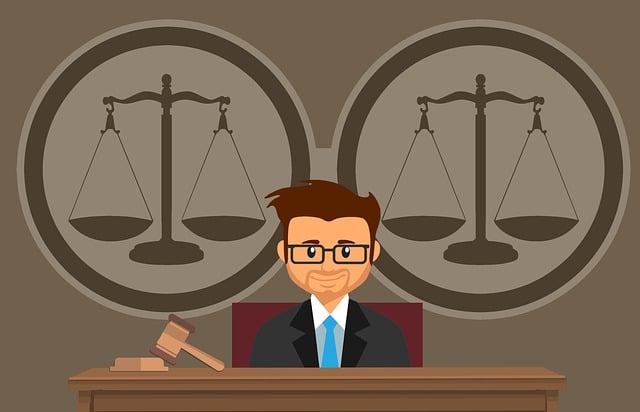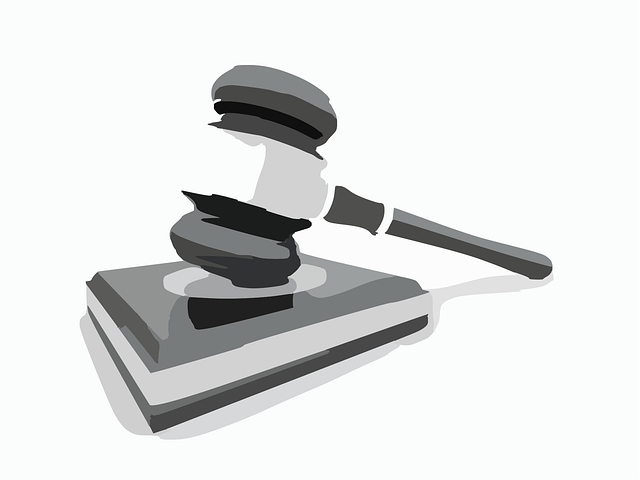"How Due Process Affects Sentencing" explores the crucial role of due process in RF finance law firms, ensuring fair sentencing and balancing rights protection with public safety. Understanding these procedural safeguards is key for positive outcomes, especially in complex financial cases. Specialized law firms navigate this relationship through meticulous investigation, robust arguments, and strategic compliance, achieving favorable verdicts while upholding integrity and fairness in the legal system. This approach is vital for protecting client rights, preventing arbitrary judgments, and promoting proportional sentencing in high-stakes RF finance scenarios.
In the intricate landscape of RF finance law, understanding due process in sentencing is paramount. This article explores how How Due Process Affects Sentencing shapes the role of legal firms serving this niche sector. We delve into its impact on these specialized practices, offering insights into navigating legal requirements effectively. Through strategic approaches to fair and just punishment, we present case studies illustrating real-world applications. By understanding due process, RF finance law firms can ensure their clients receive equitable treatment within the legal framework.
- Understanding Due Process in Sentencing
- The Impact on RF Finance Law Firms
- Navigating Legal Requirements Effectively
- Strategies for Fair and Just Punishment
- Case Studies: Real-World Examples
Understanding Due Process in Sentencing

Due process plays a pivotal role in shaping fair sentencing practices within RF finance law firms. It refers to the fundamental legal principle ensuring individuals are treated equitably and receive just treatment under the law. In the context of sentencing, due process guarantees that defendants are afforded their rights at every step of the criminal justice system. This includes the right to be informed of the charges, to confront witnesses, and to present evidence in their defense.
Understanding how due process affects sentencing is crucial for clients navigating RF finance law firms. It involves a meticulous balance between protecting the rights of the accused and ensuring public safety. By adhering to these procedural safeguards, law firms can contribute to an unprecedented track record of successful cases, demonstrating their commitment to justice while avoiding unnecessary indictment. This meticulous approach ensures that sentences are not only fair but also proportionate to the offense, fostering a more transparent and trustworthy legal system.
The Impact on RF Finance Law Firms

The legal landscape in RF Finance, much like other sectors, is deeply influenced by due process and its implications on sentencing. How Due Process Affects Sentencing plays a pivotal role in shaping the strategies and outcomes for law firms specializing in RF Finance. This meticulous process ensures fairness and justice, which are paramount in handling complex financial cases. It demands thorough investigation, comprehensive legal arguments, and a deep understanding of both the client’s needs and the intricate regulations that govern the industry.
For his clients, winning challenging defense verdicts often hinges on navigating these due process considerations. RF Finance law firms must adeptly represent their clients, achieving extraordinary results by presenting compelling evidence, countering accusations, and interpreting laws and regulations in their favor. This specialized approach not only ensures favorable outcomes but also reinforces the integrity of the legal system, highlighting the critical role played by these law firms in safeguarding financial interests and upholding due process.
Navigating Legal Requirements Effectively

Navigating Legal requirements effectively is paramount for RF finance law firms, especially when dealing with high-stakes cases involving white collar and economic crimes. The intricate web of regulations and statutes demands meticulous attention to detail to ensure compliance and mitigate potential risks. One crucial aspect that comes into play is due process, a fundamental principle that affects sentencing in significant ways. For his clients, understanding how due process influences legal outcomes is essential for building robust defenses and achieving favorable results.
By adhering strictly to due process procedures, law firms can protect their client’s rights while navigating the complexities of these cases. This includes ensuring fair notice, providing opportunities for legal representation, and allowing for the presentation of evidence and arguments. Ultimately, a thorough grasp of how due process affects sentencing equips RF finance lawyers with the tools to effectively advocate for their clients in even the most challenging white collar and economic crimes scenarios.
Strategies for Fair and Just Punishment

In navigating high-stakes cases involving RF finance and law, ensuring fair and just punishment is paramount. The concept of due process plays a pivotal role in shaping sentencing strategies. It mandates that individuals accused of wrongdoing receive a thorough and impartial hearing, guaranteeing their rights to defend themselves effectively. This meticulous approach is especially critical in the intricate world of RF finance, where decisions can have far-reaching implications for businesses and individuals alike.
The impact of due process on sentencing cannot be overstated, particularly in light of the unprecedented track record these cases often command. By adhering to strict procedural guidelines, law firms specializing in RF finance can safeguard against arbitrary judgments. This strategic focus ensures that punishments are proportional to the alleged offenses, fostering a sense of fairness and maintaining the integrity of the respective business environment.
Case Studies: Real-World Examples

In the realm of RF Finance Law Firms Serving, case studies offer a tangible look into how legal strategies impact real-world financial scenarios. These examples highlight the intricate interplay between legal representation and regulatory compliance, particularly in navigating white collar and economic crimes. By examining successful defenses and prosecutions, we uncover insights into how due process affects sentencing—a crucial aspect of ensuring fairness throughout all stages of the investigative and enforcement process.
Firms with an unprecedented track record in this domain demonstrate the value of specialized knowledge. They guide clients through complex legal landscapes, ensuring that rights are protected while adhering to stringent regulations. Through these case studies, it becomes evident that effective legal representation not only mitigates penalties but also fosters a culture of transparency and accountability, ultimately strengthening the integrity of financial systems.
Understanding how due process affects sentencing is crucial for both legal professionals and financial institutions. By navigating the legal requirements effectively, RF finance law firms can ensure fair and just punishment, as evidenced by real-world case studies. This knowledge enables them to serve their clients with integrity while adhering to the highest legal standards, ultimately fostering a more equitable and transparent justice system.






